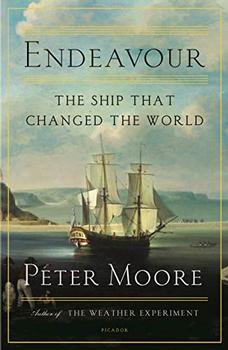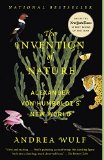Summary | Excerpt | Reviews | Beyond the book | Read-Alikes | Genres & Themes | Author Bio

Four Voyages and the Battle for the Theory of Evolution
by Iain McCalmanDarwin's Armada tells the stories of Charles Darwin, Thomas Huxley, Joseph Hooker and Alfred Wallace, four young amateur naturalists from Britain who voyaged to the southern hemisphere during the first half of the nineteenth century in search of adventure and scientific fame. It charts their thrilling voyages to the strange and beautiful lands of the southern hemisphere that reshaped the young mariners' scientific ideas and led them, on returning to Britain, to befriend fellow voyager Charles Darwin. All three crucially influenced the publication and reception of his Origin of Species in 1859, one of the formative texts of the modern world.
For the first time the Darwinian revolution of ideas is seen as a genuinely collective enterprise and one that had its birth in a series of gripping and human travel adventures. Many of the most urgent ecological and social issues of our times are seen to be prefigured in this compelling story of intellectual discovery.
A must-read for anyone interested in how the theory of evolution developed. It is recommended particularly for those with an interest in the biological sciences, although non-scientific readers will find it very accessible...continued
Full Review
(642 words)
This review is available to non-members for a limited time. For full access,
become a member today.
(Reviewed by Kim Kovacs).
The theory of evolution states that all life is related and has descended from a common ancestor; complex creatures evolve over a long period of time from simpler organisms. Evolution is not concerned with the origin of Earth or of the Universe, but attempts to explain why different living things have developed and diversified since life first appeared on Earth.
Evolutionary thought had been around for centuries before Charles Darwin's time;
the first person known to have speculated on the topic was the Greek philosopher Anaximander in the 6th century BCE. Similar pre-evolutionary ideas appeared across Greece, Rome, China, and throughout the Arab world into the Middle Ages. German philosopher Immanuel Kant (1724-1804) and Swedish ...
This "beyond the book" feature is available to non-members for a limited time. Join today for full access.

If you liked Darwin's Armada, try these:

by Peter Moore
Published 2020
An unprecedented history of the storied ship that Darwin said helped add a hemisphere to the civilized world.

by Andrea Wulf
Published 2016
The acclaimed author of Founding Gardeners reveals the forgotten life of Alexander von Humboldt, the visionary German naturalist whose ideas changed the way we see the natural world - and in the process created modern environmentalism.